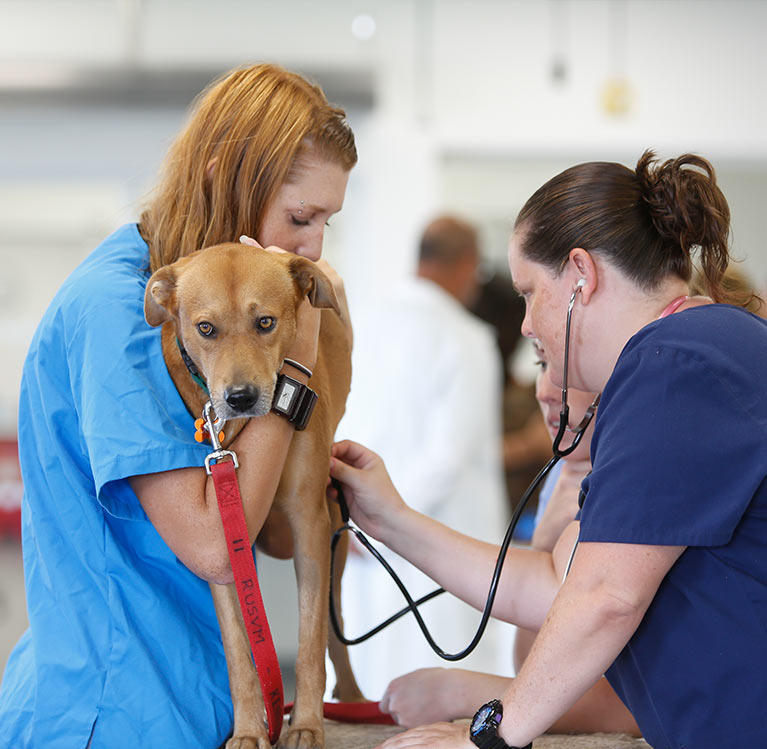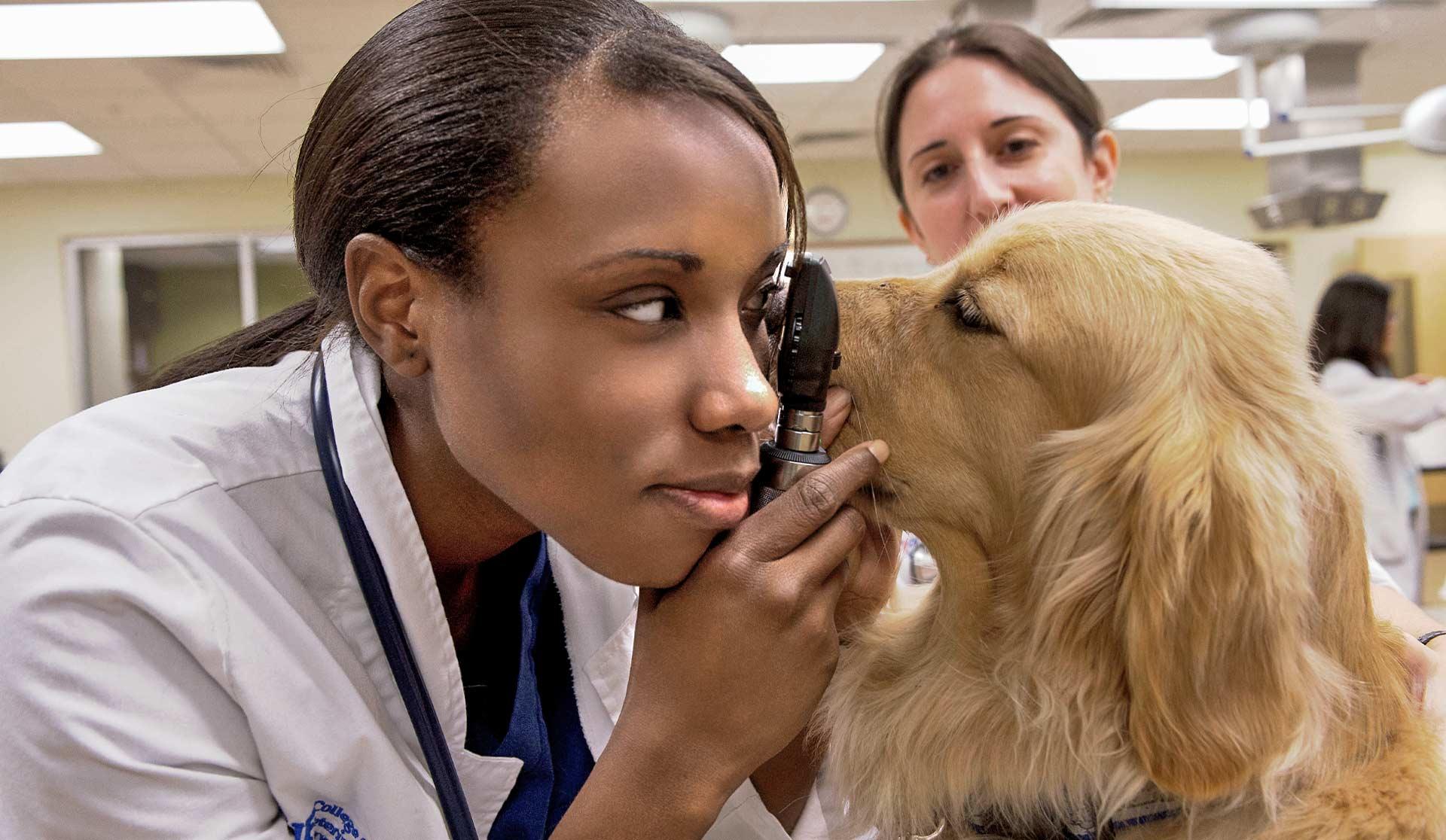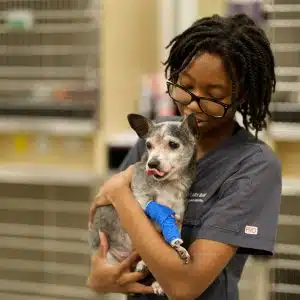Comprehensive Guide to the Solutions Used by a Veterinary Oncologist
Vet oncology includes a broad selection of solutions targeted at dealing with and diagnosing cancer cells in animals. Veterinary Oncologist. Oncologists use advanced analysis techniques and use different therapy options customized to each pet's demands. They likewise focus on supportive treatment and give important sources for pet proprietors. Understanding these services is crucial for making informed choices. What details aspects of vet oncology can especially impact a family pet's therapy journey?
Comprehending Vet Oncology
Vet oncology is a specialized field concentrated on diagnosing and treating cancer cells in pets. This discipline includes a large range of methods, from clinical therapies such as radiation treatment and immunotherapy to surgical interventions intended at getting rid of tumors. Veterinary oncologists are trained to acknowledge the special indications of cancer cells in various species, enabling them to customize therapy strategies to individual clients.
Along with traditional treatments, veterinary oncology highlights helpful care, which plays a necessary duty in boosting the top quality of life for damaged pets. This consists of discomfort monitoring, dietary assistance, and palliative treatment choices. Partnership with family pet proprietors is vital, as they are important to decision-making concerning their family pets' therapy courses. As study advances, vet oncology remains to progress, using brand-new hope and enhanced outcomes for pets detected with cancer cells. Generally, this field is fundamental for addressing the intricacies of cancer cells in buddy animals.
Advanced Diagnostic Techniques
Advanced diagnostic strategies play a crucial duty in veterinary oncology, providing critical understandings right into the existence and extent of cancer cells in animals. Imaging modalities such as ultrasound, CT scans, and MRI are generally utilized to imagine tumors and analyze their attributes. Furthermore, biopsy procedures are necessary for acquiring tissue examples, enabling clear-cut medical diagnosis and tailored therapy plans.
Imaging Modalities Utilized
Imaging methods play a necessary function in the medical diagnosis and administration of cancer in animals. Veterinary oncologists use various innovative imaging methods to assess growth visibility, metastasis, and dimension. Radiography, or X-rays, provides an initial view of bone and upper body conditions, while ultrasound supplies real-time imaging of soft tissues, permitting comprehensive evaluation of interior organs. Calculated tomography (CT) improves visualization of complicated physiological frameworks and allows 3D repairs, aiding in accurate lump localization. Magnetic vibration imaging (MRI) is indispensable for soft cells differentiation, particularly in brain lumps. Additionally, nuclear medicine methods such as positron exhaust tomography (PET) help determine metabolic task within lumps. Jointly, these methods enhance analysis accuracy, directing effective therapy approaches for oncological individuals.
Biopsy Procedures Described
Following the preliminary analysis via imaging modalities, obtaining a definitive diagnosis commonly calls for cells tasting via biopsy treatments. Vet oncologists make use of numerous biopsy strategies based upon the lump's area and features. Great needle desire (FNA) is a minimally intrusive approach that removes cells for cytological exam, perfect for surface masses. Core needle biopsies give bigger cells examples and serve for much deeper growths, enabling for histopathological analysis. Surgical biopsies include excising a portion or the entire lump, facilitating thorough evaluation. These treatments not just verify the presence of cancer yet additionally assist identify its type and quality, leading therapy decisions. Each biopsy method is selected meticulously to stabilize diagnostic precision with person safety and security and comfort.
Treatment Options for Cancer Cells in Pets
When a pet dog is identified with cancer cells, a range of therapy choices become offered to help enhance and take care of the disease lifestyle. Veterinary oncologists normally recommend a multidisciplinary technique customized to the private pet dog's needs, which might consist of surgical treatment, radiation treatment, immunotherapy, or alternative therapies.
Surgical procedure is frequently utilized to get rid of lumps and damaged cells, possibly leading to total remission in some situations. Radiation therapy intends to target and damage cancer cells, minimizing lump size and relieving signs - Board Certified Veterinary Oncologist. Immunotherapy takes advantage of the pet's immune system to combat cancer cells better, while alternate therapies may consist of acupuncture or organic supplements to sustain overall health
Each treatment option brings its own benefits and dangers, and vet oncologists function very closely with pet dog proprietors to make an extensive plan that lines up with the family pet's specific diagnosis and the owner's wishes. The ultimate goal is to enhance the pet's convenience and quality of life throughout their cancer cells trip.
Radiation treatment for Pets
Chemotherapy is a typical treatment option for pets diagnosed with cancer and is frequently used together with various other treatments detailed by veterinary oncologists. This treatment involves the management of details medicines created to target and ruin cancer cells, thus decreasing tumor dimension and protecting against the spread of the condition. Vet oncologists tailor chemotherapy methods based on the kind of cancer, the pet's overall wellness, and the wanted treatment end result.
Side impacts can happen, as these drugs might likewise affect healthy and balanced cells. Typical reactions consist of queasiness, vomiting, and short-lived modifications in appetite - Veterinary Oncologist. Vet oncologists are geared up to manage these negative effects efficiently, ensuring the pet's comfort throughout the treatment procedure. Normal tracking with blood tests and follow-up visits is crucial to evaluate the animal's feedback to chemotherapy and make required modifications. Inevitably, radiation treatment can provide substantial advantages, enhancing the lifestyle for pets facing cancer cells medical diagnoses

Radiation Therapy in Veterinary Medicine
Radiation treatment functions as a reliable treatment option for pets identified with localized growths, supplying a targeted approach to cancer cells monitoring. This technique uses high-energy radiation to damage the helpful site DNA of cancer cells, inhibiting their ability to multiply. It is particularly beneficial for lumps that are not responsive to surgical removal or for cases where surgical treatment may not be viable due to the tumor's area.
Vet oncologists customize radiation procedures based upon tumor size, place, and kind, as well as the pet dog's total wellness. Therapy can be provided by means of external beam of light radiation or brachytherapy, each with distinct benefits. Usually, numerous sessions are required to make best use of efficiency while minimizing adverse effects.
Animals might experience momentary reactions such as skin irritability, the overall objective is to reduce growths and reduce signs, inevitably boosting the animal's prognosis and high quality of life. As necessary, radiation treatment plays a vital role in extensive cancer care.
Palliative Care and Lifestyle
Palliative care in veterinary oncology concentrates on enhancing the lifestyle for animals facing terminal health problems, making sure comfort and dignity in their final days. This specific strategy prioritizes pain administration, sign control, and psychological assistance. Veterinary oncologists assess each family pet's individual demands, customizing interventions to reduce discomfort and enhance total wellness.
Techniques may include administering medications for discomfort alleviation, taking care of nausea, and addressing other stressful signs. Additionally, dietary assistance is usually supplied to preserve toughness and enhance hunger. The psychological element of palliative treatment is just as crucial; producing a tranquil setting helps Learn More Here in reducing anxiousness for both animal and owner.
Inevitably, the goal of palliative treatment is to permit family pets to appreciate their remaining time with as much happiness and self-respect as feasible. By concentrating on convenience and lifestyle, veterinary oncologists play a crucial role in making sure that pets and their family members browse this challenging trip with compassion and understanding.
Assistance for Animal Owners Throughout Treatment

Emotional Guidance for Owners
Charting the psychological landscape throughout an animal's cancer cells therapy can be a frustrating experience for proprietors. The unpredictability surrounding diagnosis and diagnosis can lead to sensations of anxiousness, sadness, and helplessness. Vet oncologists identify the relevance of psychological support and often offer advice to help owners browse this tough trip. Interaction is crucial; talking about treatment alternatives and possible end results can ease some concerns. Additionally, supplying peace of mind that psychological actions stand fosters a supportive environment. Several oncology centers may additionally suggest assistance teams or therapy services tailored for animal proprietors, facilitating common experiences. Motivating owners to prioritize self-care during this time around is essential, as their psychological well-being straight influences their family pet's convenience and general treatment experience.

Resources and Educational Products
Guiding through the intricacies of a family pet's cancer cells therapy can be intimidating for proprietors, making accessibility to dependable resources and educational materials vital. Veterinary oncologists frequently give a variety of handouts, pamphlets, and online products that discuss treatment alternatives, possible negative effects, and treatment techniques. These resources help debunk the process and encourage pet owners to make enlightened decisions. Additionally, several oncology facilities offer access to sustain forums and teams where owners can link with others dealing with comparable difficulties, fostering a sense of neighborhood. Educational webinars and workshops conducted by veterinary experts even more improve understanding, making sure that proprietors are fully equipped to navigate their pet's journey via cancer cells therapy with confidence and knowledge.
Often Asked Concerns
Exactly How Can I Prepare My Animal for a Veterinary Oncology Check Out?
Preparing an animal for a veterinary oncology browse through learn this here now involves celebration clinical records, keeping in mind signs, and guaranteeing the pet dog fits. A tranquil behavior and acquainted things can assist reduce anxiety throughout the visit.
What Are the Indications My Family Pet May Have Cancer?
Indicators that a family pet might have cancer cells include unusual weight-loss, consistent throwing up or looseness of the bowels, unusual lumps or swellings, sleepiness, modifications in cravings, trouble breathing, and changes in behavior. Trigger vet focus is important.
How Can I Assistance My Animal Psychologically During Treatment?
Supporting a pet dog mentally during treatment entails giving convenience, keeping routines, supplying gentle affection, and ensuring a tranquil atmosphere. Engaging in peaceful play and routine companionship helps minimize stress and anxiety and fosters a complacency.
Exist Alternate Therapies for Animals With Cancer?
Different therapies for pets with cancer consist of acupuncture, natural treatments, and nutritional support. These approaches might complement traditional therapies, promoting overall well-being. Consulting with a vet is vital for risk-free and effective integration of alternate therapies.
What Costs Should I Expect for Veterinary Oncology Providers?
The expected expenses for veterinary oncology services can differ significantly, commonly affected by diagnostics, treatments, and continuous treatment. Family pet owners should get ready for costs varying from examinations to specialized therapies, showing the intricacy of cancer monitoring.
Cooperation with animal owners is essential, as they are indispensable to decision-making concerning their pets' treatment courses. Each treatment choice lugs its own benefits and dangers, and veterinary oncologists function closely with pet owners to design a comprehensive plan that straightens with the family pet's certain diagnosis and the owner's desires. Animals might experience momentary responses such as skin inflammation, the total goal is to shrink growths and minimize signs and symptoms, ultimately boosting the animal's prognosis and quality of life. Assistance for animal proprietors throughout treatment is crucial in steering via the emotional difficulties connected with an animal's cancer medical diagnosis. Preparing a family pet for a vet oncology see involves event medical records, noting symptoms, and ensuring the pet dog is comfortable.